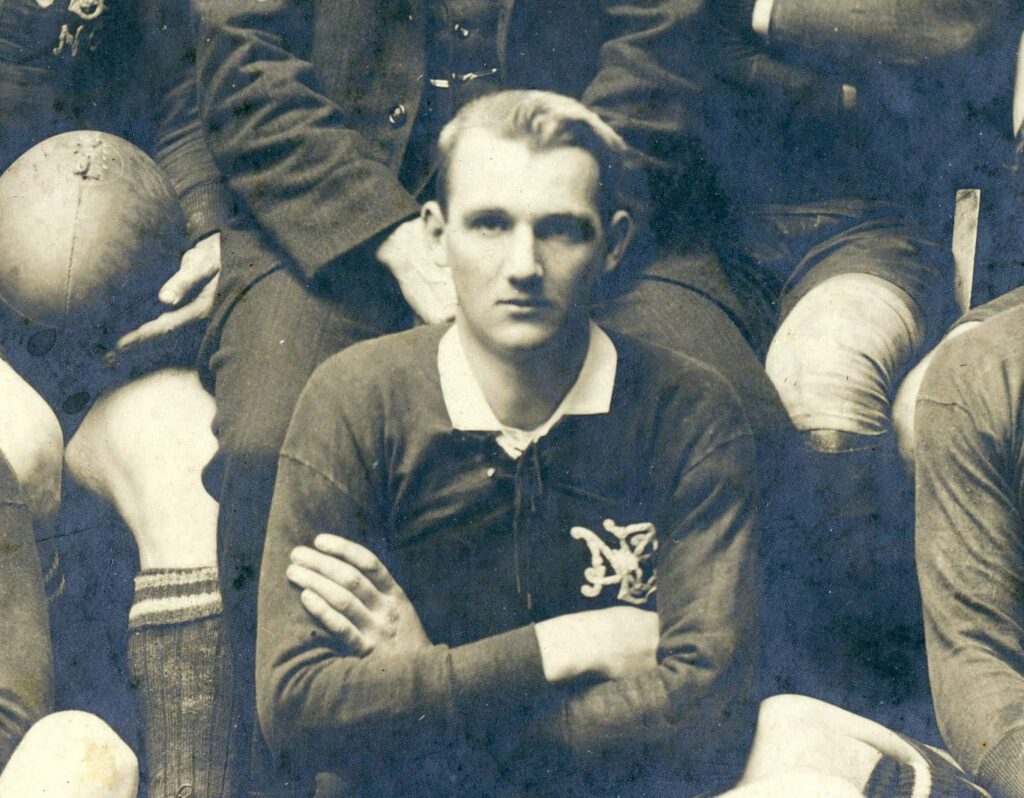“He didn’t talk about the war much at all, but we were proud of him.”
Charles Gordon Stewart, known to those closest to him as Mac, had the makings of an All Black. But then history happened.
The young rugby player from Hastings would see a lot of action in the First World War, including playing a pivotal role in the liberation of Le Quesnoy in 1918 and winning the Military Cross in the process.
“He fought at Gallipoli and on the Western Front,” says his grandson, Andrew Peacocke. “He was wounded a couple of times and sadly, it affected his ability to play rugby again when he got back to New Zealand.”
Before Mac left for the war, he was selected as a member of the North Island team and was tipped to make the All Blacks. The war also interrupted a promising career in the banking sector.
According to letters and memoirs written by Mac’s son Ian Stewart, he was an eager and early recruit in 1914, signing up not long after war was declared. Joining the Wellington Infantry Battalion, he left New Zealand on October 16 after completing his military training bound for Egypt and then onto Gallipoli.
He survived, what Ian Stewart describes as, the “unimaginable horror of Gallipoli” where Mac was wounded. He went on to fight on the Western Front in France where he rose to the rank of Lieutenant by 1918.
During his stint in France, he suffered a serious arm wound and was taken to a hospital near Edinburgh to recuperate. It was there he met nurse Katherine Wilson. The pair were married in Edinburgh in August 1918 before Mac returned to France for the final months of the war.
At this stage of the war, the Allies were reeling from a recent German offensive, and the New Zealand Division was sent to the Somme where it successfully repelled German advances near Amiens. According to the records of the New Zealand Division, it went on the offensive in August 1918, seizing the important town of Bapaume after fierce fighting.
For the next three months, the division formed the spearhead of the last British offensive against the Germans.
Towards the end of 1918, on November 4, Lieutenant “Mac” arrived at the small town of Le Quesnoy in northeastern France. The New Zealand troops had been given the order to liberate the town from four years of German occupation.
Mac led two platoons against a well-defended enemy position with machine guns, and it was this action that saw him awarded the Military Cross. The citation on the award read: “He led his platoon with determination and skill. He showed great coolness and initiative.”
In 1919 he sailed back to New Zealand with his “war bride”, Katherine.
“He came home, like other veterans, a very different person from the one who sailed off to war on the other side of the globe,” wrote Ian Stewart.
Mr Peacocke says like many veterans, blending back into civilian life was difficult, and he went through a number of different jobs. “He never talked about the war and Le Quesnoy much at all, but we were very proud of him,” he says.
